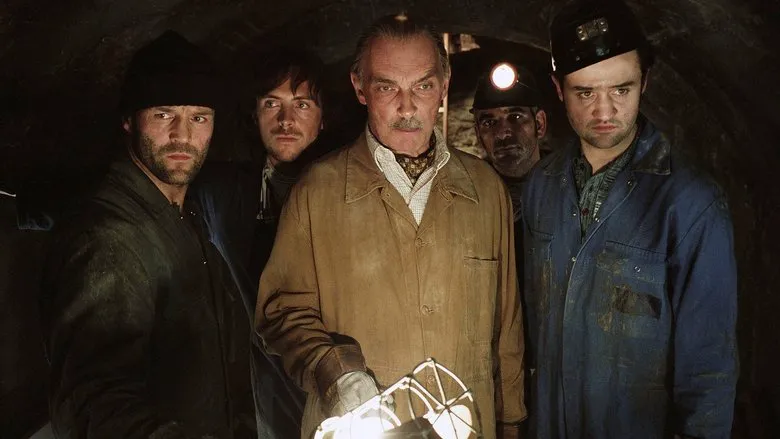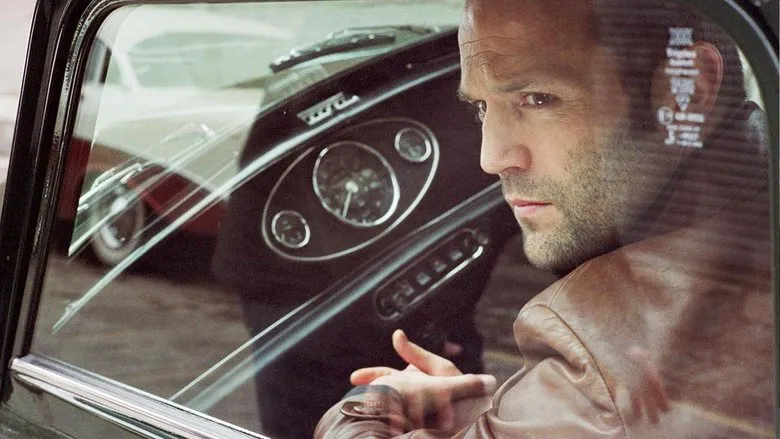The Unspoken “F*ck” in The Bank Job
Every time Terry, Jason Statham’s character in The Bank Job, faces the harsh realities of his world, there’s an unspoken “fck" echoing in his mind. Watch closely: Terry learns his friend has been murdered. His gaze freezes for a split second – that’s the silent "fck.” Or when he realizes the woman he trusted has used him, he doesn’t immediately confront her, but pauses for a fleeting moment. F*ck.

Stanislavski would approve. In The Bank Job, Statham isn’t playing the typical cool-headed action hero with a spare clean shirt in the trunk, nor the adrenaline junkie who needs constant thrills to survive. He couldn’t care less about adrenaline. He’d rather be with his wife and daughters, making a living selling used cars. But business is slow, his wife is overly jealous, and shady characters are demanding money. Then Martina, an old flame, appears with a seemingly easy job: assemble a team and rob a bank. In the first half of the film, Terry digs. In the second, he thinks.
Based on a True Story
The Bank Job is based on a true story: the 1971 Baker Street robbery in London. A ham radio enthusiast intercepted the robbers’ radio communications and alerted the police. For days, the newspapers were filled with the story, only for it to suddenly disappear, resurfacing only 30 years later. According to the filmmakers, the robbery was orchestrated to retrieve compromising photographs of a royal figure from a bank vault. To make matters worse, neighboring safety deposit boxes contained even more scandalous material, leading MI-5, underground pornographers, corrupt police officers, secret perverts, and brothel owners to hunt down the robbers, hoping to strike a deal.
Add to this mix Black Power leader Michael X, a touch of marijuana, painfully beautiful cars, and equally beautiful women, and you have the loose atmosphere of early 1970s Britain. The Beatles had broken up, Michael Caine, not Sylvester Stallone, starred in Get Carter (2000), Britpop was still a distant dream, and Margaret Thatcher was merely the Minister of Education. The elite were corrupt and indulging in debauchery, while the working class struggled to make ends meet. Perhaps through a bank robbery, especially since surveillance cameras didn’t exist yet, and compromising material was stored in vaults, not on hard drives. It might not be a coincidence that the robbers almost got caught because of the only gadget they used: a radio.

A Nostalgic Heist
The Bank Job is a detailed and energetic production, where the characters constantly teeter on the brink of failure. Terry and his accomplices – a model, a fashion photographer, a porn actor, a crook, a laborer, and a gofer – possess no sophistication, no foresight, and rely purely on luck. They manage to lose their radio, call each other by name on the air, and stumble into some plague-ridden dungeons. But, firstly, fortune favors fools, and secondly, thanks to director Roger Donaldson, there’s no obnoxious comedic tone. It all feels real. Small-time losers take on a job that requires brains. They have brains, of course, especially Terry and Martina, but they work slowly – what else would you expect from pre-computer age crooks?
The Bank Job evokes a sharp sense of nostalgia for a bygone era that seems almost legendary: porn uous Princess Margaret, Black Power, a lord in women’s underwear – a time when you could rob a bank through a tunnel dug from a neighboring shop. Those days are gone. F*ck.